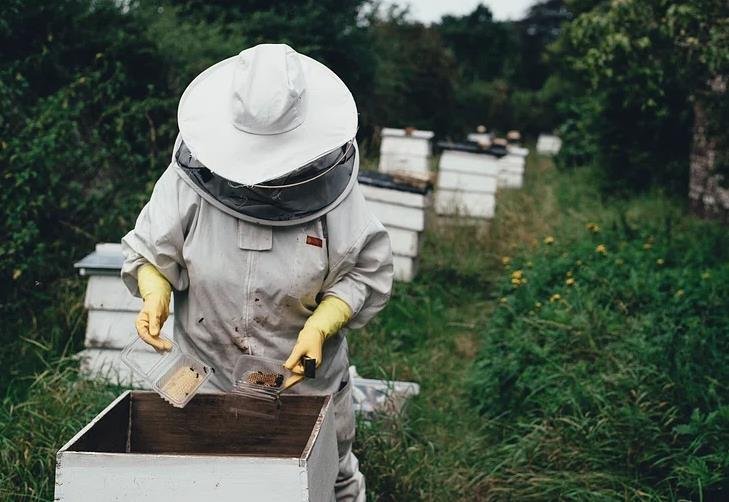In the lush landscapes of Whakamārama, a small yet vibrant community of beekeepers has found their sweet spot in the agricultural ecosystem. Here, pollination isn’t just a natural process; it’s the lifeblood of an industry that sustains both the local flora and the beekeepers’ livelihoods.
At the heart of Whakamārama’s beekeeping success is the symbiotic relationship between bees and the crops they pollinate. Bee First Apiaries, a local business run by partners Craig Lovell and Maree Paynter, has been thriving on pollination services for a decade. Their bees’ tireless work across kiwifruit and avocado orchards is a testament to the critical role pollinators play in our food supply.
Craig and Maree’s operation is meticulous and timed with nature’s rhythm. They transport their hives under the cloak of darkness, ensuring their bees are ready at dawn to begin their vital work. The result is a flourishing yield for the orchards and a sustainable business model for the beekeepers.

The Business of Bees
Beekeeping in Whakamārama is more than honey production; it’s about understanding the intricate dance of agriculture. The beekeepers’ expertise in pollination has made them indispensable to the region’s farmers. With over 800 hives, Craig and Maree navigate the delicate balance of keeping their bees healthy while maximizing their pollination potential.
Their approach is both science and art, requiring knowledge of bee behavior, plant biology, and weather patterns. The beekeepers’ days are long, their work often unseen, but the fruits of their labor are evident in the bountiful harvests and the robust health of their hives.
A Model for the Future
Whakamārama’s beekeepers are not just running a business; they’re stewards of a tradition that is vital to our planet’s future. Their success story is one that could serve as a model for sustainable agriculture worldwide. As pollinators face global challenges, the practices adopted here offer hope and a way forward.
The beekeepers of Whakamārama are a reminder of the delicate interdependence between humans and nature. Their work ensures that the buzz of bees continues to herald the arrival of spring and the promise of a fruitful year.








